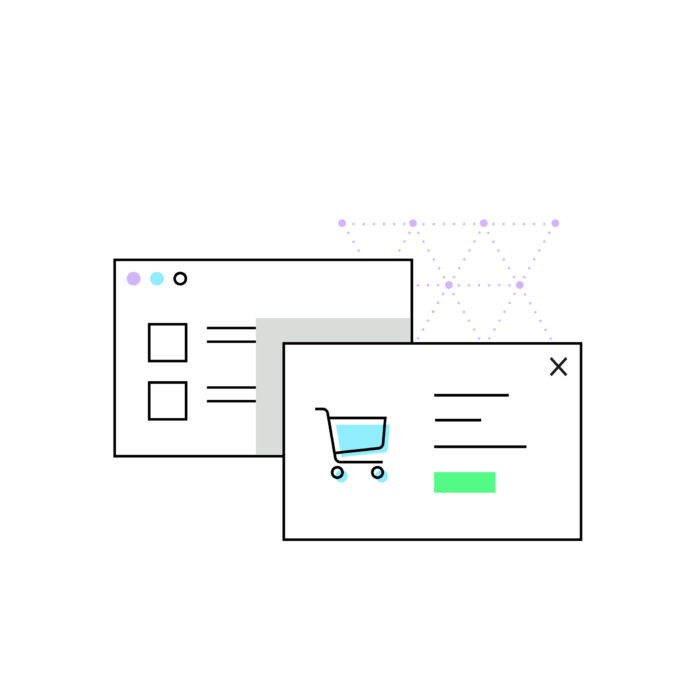The top retail trends, from an industry expert
by January 12, 2025
Retailers face plenty of challenges daily, from supply chain issues to rising inflation to finding new customers. To tackle these problems head on, it helps to have advice from e-commerce industry experts of all kinds. That’s why we speak regularly to retail experts about the timely issues facing e-commerce businesses today, and on the retail trends they see coming to the forefront in the future.
We spoke to Andrew Youderian, the founder/owner of eCommerce Fuel, a community of seven to eight figure store owners. He’s also the host of an insightful podcast of the same name that focuses on the realities of running a business online – from the tactical, day-to-day aspects around conversion rates and profitability to frank conversations about a work/life balance.
Here’s what we learned from Youderian in a wide-ranging conversation:
Facebook: take the good with the bad
While Facebook’s parent company may have rebranded with a new name (Meta) and pivoted its resources to develop the metaverse, its legacy social media brand is still a hugely important way for retailers to sell their products. Let’s take a look at what retailers are dealing with on Facebook:
The good: According to a survey Youderian conducted of 600 e-commerce store owners, Facebook is the third largest source of traffic (20%) for retailer’s websites, behind only organic traffic/SEO and Google Ads.
The bad: Facebook’s ongoing battle with Apple over privacy issues has cost the company a reported $10 billion in revenue, and retailers are caught in the crossfire, with many reports saying there have not been as robust advertising opportunities as there were previously. The silver lining is that there are reports that small businesses advertising on Facebook may be improving.
Managing compliance is a worthy investment
For growing businesses focused on improving profitability and adding customers, compliance may be down the list of priorities. But it shouldn’t be. “There are things that can be a headache [to deal with] up front, but they can become a nightmare down the road if you get out of compliance,” Youderian says.
For example, he sees security audits as important because “a security breach can blow up a business in a horrific way.” Add sales tax compliance to the list as well. “If you get way behind on sales tax in jurisdictions where you have liability, those costs can quickly escalate exponentially,” he notes. “It’s a real investment in the future of your business. There’s peace of mind as well to not get killed with a catastrophic cost.”
Retailers top channels are changing
Youderian’s survey data also noted a shift in terms of where retailers find their customers. It’s difficult to overstate the importance that Facebook has had in terms of providing leads to merchant’s sites over the last decade, but that appears to be changing. If you look at the top channels driving traffic to merchants, SEO and organic search traffic are about 25%, Google Ads is 23% and Facebook is 20%. Those numbers are not static. “It’s probably shifted a bit over the last nine months because people have seen Facebook results fall off a cliff,” he said. “Merchants have been shifting some of that Facebook ad spend over to Google because it’s the next obvious big player.”
And while 23% of retailers say their top channel is Amazon (70% said it was their own website), Youderian says it remains to be seen whether Amazon will continue to be such a dominant marketplace for the seven and eight-figure merchants he works with. “Amazon’s fees have gone up,” he said. “More overseas sellers (and Amazon itself) are competing more heavily and directly [with retailers]. I think what you’ll see is something happening similar to Facebook – people were on Facebook for a really long time and grew dependent on it, and then there was a cataclysmic event between Facebook and Apple that left a lot of people in trouble. I don’t think we’ll quite see that same sharp change – I think we’ll see a gradual decline.”
Shipping prices, supply chain issues and inflation continue to dominate
The price of shipping containers have gone up considerably for retailers as demand for goods has grown. “Almost no one is paying less than $12,500 per container,” Youderian explains. “It’s still largely $12,500 to $15,000 and up. It’s moderated a tiny bit, but it’s still very much nowhere back to normal.”
That’s not the only issue for retailers reliant on imported products – supply chain problems are still present as well. “34% of retailers in our survey said that ocean freight shipments are taking three to four weeks longer than they were before the pandemic, while 30% say it’s taking five to six weeks longer,” he notes.
As if rising shipping costs and delays weren’t enough, inflation is also taking a toll on retailers’ bottom lines. “85% of the 600 e-commerce store owners we surveyed had their suppliers raise prices on them in the last year,” he said.
The must-have tools in the e-commerce tech stack
For retailers focused on keeping costs low while scaling, it can be helpful to understand which tools are critical to success and which tools are nice-to-haves. Based on his years in the industry, Youderian shared his opinions on the tools that are a must for e-commerce businesses:
- Shopping cart
- Shipping software
- Customer service help desk
- Email marketing tool
- SMS marketing tool
- Sales tax compliance software
Retailers should plan for compliance, no matter the current climate
There will always be macroeconomic trends outside a retailer’s control that can heavily influence your e-commerce business. The one thing you can always control? Your compliance. TaxJar’s sales tax platform will help you track your nexus requirements and automatically calculate the accurate amount of sales tax for every item, in every state. Our platform also compiles orders from all your e-commerce channels into one palace, giving your team access to real-time reports and ensuring you are prepared for growth. To learn more about TaxJar, start a 30-day free trial.







